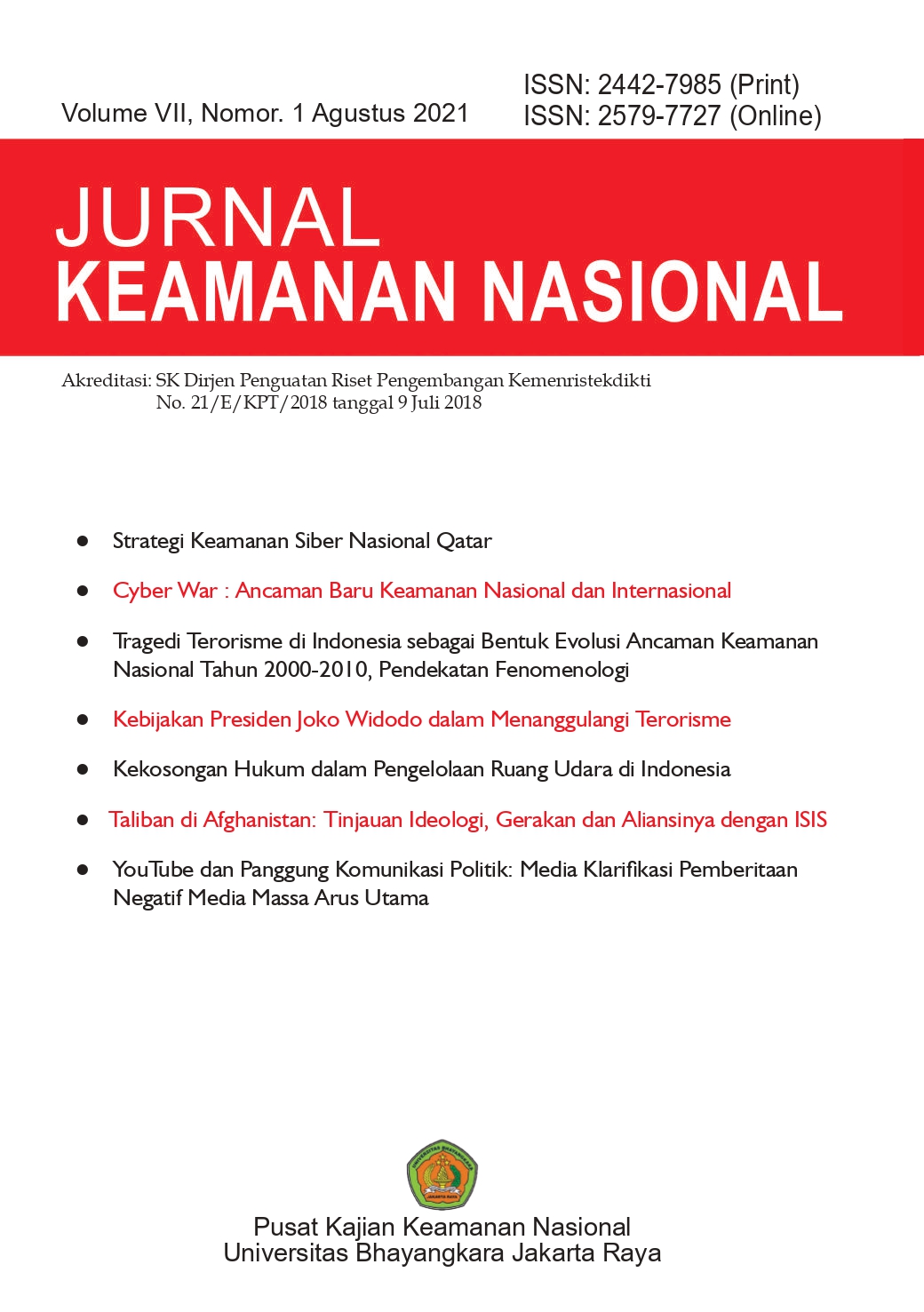YouTube dan Panggung Komunikasi Politik: Media Klarifikasi Pemberitaan Negatif Media Massa Arus Utama
Keywords:
Democracy, Political Communication, Internet, New Media, YoutubeAbstract
The presence of the internet and new media have provided opportunities for the public to participate in political conversations or debates through new media, which is user-generated content. New media of the user-generated content type is the media with content created by the users of the new media themselves. YouTube is a new type of media, although the interactions offered are not as busy as other social media, the use of YouTube is quite effective in boosting the popularity of political communicators. Through YouTube, important information can be disseminated in more personal or dialogical ways in
responding to various public curiosity. During the last few years in Indonesia, Youtube has also been widely used by political communicators to upload videos containing political statements or attitudes on actual issue. It is often that Youtube is also used as a medium for political communicators to clarify when they feel that they have been described negatively by the mainstream mass media.
Downloads

Downloads
Published
Issue
Section
License
Please read and understand the copyright terms for submissions to this journal.
Copyright Notice
The Jurnal Keamanan Nasional is under the Creative Commons Attribution 4.0 International (CC-BY 4.0) License, according to which:
1) Authors retain copyright and grant the journal the right to first publication, with the work simultaneously licensed under the Creative Commons Attribution (CC-BY 4.0) that allows the sharing of articles published with the acknowledgement of authorship and the initial publication in this journal.
2) The authors are authorized to make additional contracts separately for distribution of the version of the work published in this journal (for example, publication in an institutional repository or as a chapter of the book), as long as there is recognition of authorship and initial publication in this journal.
3) Authors are authorized and encouraged to publish and distribute their work online (for example, in institutional repositories or on their personal pages) at any time before or during the editorial process, as it increases the impact and reference of the published work.












